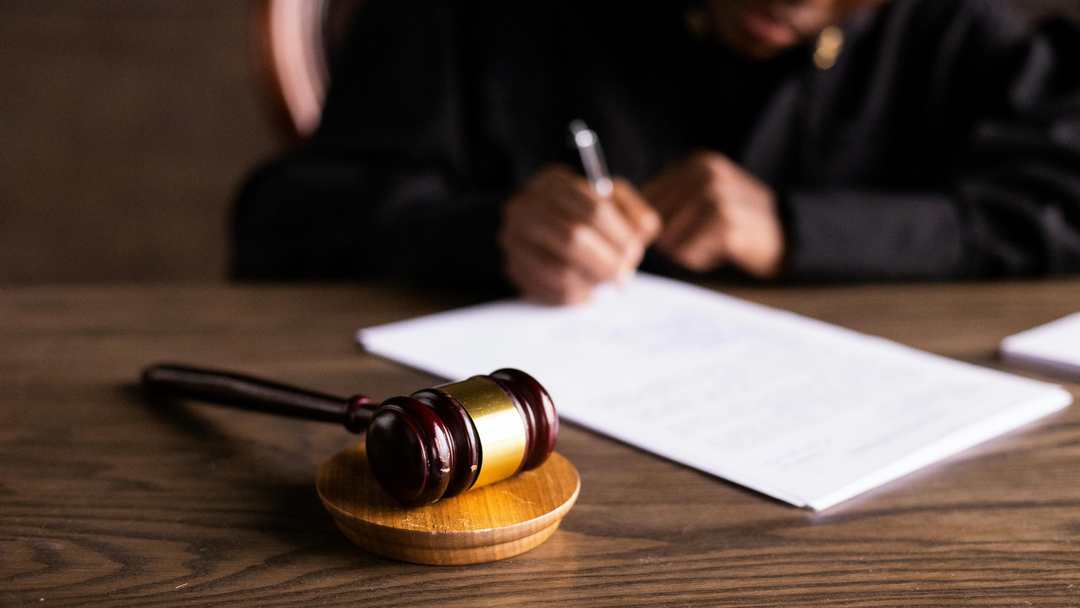Michigan Court of Appeals – People v MICHAEL JACKSON
Several critical legal issues emerged during the trial and subsequent appeals process including self defense claim and witness credibility.
In a recent decision by the Michigan Court of Appeals dated July 18, 2024, the case of People v. Jackson has sparked considerable discussion and analysis within legal circles. This blog aims to provide a comprehensive overview and analysis of the key aspects of this case, examining its background, legal issues, court’s opinion, and potential implications.
Background of the Case
The case revolves around the defendant, Mr. Jackson, who was charged with first-degree murder in connection with an incident that occurred in Detroit in March 2022. According to the prosecution, Mr. Jackson was allegedly involved in a heated altercation outside a local bar, which tragically resulted in the death of another individual. The defendant pleaded not guilty, claiming self-defense, which became a focal point during the trial.
During the trial proceedings, evidence was presented by both the prosecution and the defense to establish their respective narratives. Witnesses testified regarding the sequence of events leading up to the altercation, the actions of both parties involved, and the circumstances surrounding the use of force.
Legal Issues at Stake
Several critical legal issues emerged during the trial and subsequent appeals process:
Self-defense claim: Central to the defense strategy was Mr. Jackson’s assertion that he acted in self-defense. Under Michigan law, individuals have the right to defend themselves if they reasonably believe that they are in imminent danger of death or great bodily harm.
Credibility of witnesses: The credibility of witnesses and the reliability of their testimonies played a crucial role in establishing the sequence of events and determining whether Mr. Jackson’s use of force was justified.
Application of first-degree murder charge: The prosecution sought to prove that Mr. Jackson’s actions met the criteria for first-degree murder, which requires premeditation and intent to kill. The defense contested these elements, arguing for a lesser charge or acquittal based on the evidence presented.
Court’s Opinion and Rationale
In its decision dated July 18, 2024, the Michigan Court of Appeals carefully reviewed the trial record and considered the arguments presented by both parties. The court focused on several key points:
Reasonable belief in imminent danger: The court evaluated whether Mr. Jackson reasonably believed that he faced imminent danger of death or great bodily harm at the time of the incident. This assessment involved a nuanced review of the circumstances leading up to the altercation and the defendant’s state of mind.
Evaluation of witness testimony: The appellate court scrutinized the credibility of witnesses and the consistency of their testimonies. Discrepancies or inconsistencies in witness statements were weighed in determining the reliability of the evidence presented.
Legal standards for first-degree murder: In considering the charge of first-degree murder, the court examined whether the prosecution adequately proved premeditation and intent to kill beyond a reasonable doubt. This involved an analysis of the actions and motivations attributed to Mr. Jackson during the incident.
Based on its review of the case, the Michigan Court of Appeals rendered its decision, which could include affirming the trial court’s judgment, modifying the judgment, or ordering a new trial based on procedural errors or insufficient evidence.
Conclusion
People v. Jackson represents a significant legal milestone in Michigan, addressing complex issues of self-defense and murder charges within the framework of state law. The decision underscores the judiciary’s role in carefully weighing evidence, assessing legal arguments, and delivering justice in accordance with established legal principles. As the case continues to unfold through potential further appeals or retrials, its impact on legal precedent and public perception remains noteworthy and deserving of ongoing analysis.
Read the opinion here:
Court of Appeals – People v MICHAEL JACKSON 81975 (Komorn Law)
Legal Counsel and Your Rights
When facing legal challenges, particularly in criminal cases, it is advisable to seek legal counsel immediately.
An experienced attorney can provide guidance on how to navigate interactions with law enforcement while safeguarding your constitutional rights.
Since 1993 our expert legal defense in navigating criminal law matters and protecting your constitutional rights are what we eat for breakfast everyday.
Contact Komorn Law PLLC if you’re ready to fight and win.
Research us and then call us.
More Rights You Should Know

People v. Bosworth – A Murder Conviction and Its Aftermath
Michigan Court of Appeals: People v. Bosworth The case took a dark turn during the early hours of August 3, 2020. Background and Basic Facts On June 15, 2020, Aquae Keyes was tragically murdered. Jakari Robinson, initially arrested for the murder, was later released...

The 6th Amendment – Do You Know What It Is?
The 6th Amendment: is it still a thing?The 6th Amendment to the United States Constitution is a crucial pillar of the Bill of Rights, designed to ensure fair and just legal proceedings for individuals accused of crimes. Ratified on December 15, 1791, this amendment...
Other Articles
Washtenaw Prosecutor will not file any criminal charges on you
Washtenaw County Policy Directive 2025-01POLICY REGARDING QUANTITATIVE DRUG CHECKING Introduction The overdose crisis in America has persisted for decades, resulting in profound loss and suffering across the nation. Since 1999, opioid overdoses have tragically taken...
Qualifying for a Public Defender in Michigan
In Michigan, individuals charged with a crime have the constitutional right to legal representation.In Michigan, individuals charged with a crime have the constitutional right to legal representation. For those unable to afford a private attorney, the state provides...
Michigan Record Expungement Information
Am I eligible to apply to expunge a criminal record? Is it automatic?So your new girlfriend has a criminal record and you can't get that apartment together. If that's really what you want to do, then here's some information to get that record expunged. What is an...
Drones – What Drones? Update
Drone story update January 28, 2025 NJ drones 'were authorized to be flown by FAA for research,' Donald Trump says The mysterious drones that captivated New Jersey late last year were not enemy craft, but instead were authorized by the FAA, President Donald Trump said...
Terry Stop and Refusal to Identify Yourself to Police
Because this is how it always goes...This is the second part of this post. Read this first - Just Because You're Hanging Out in a High Crime Area Doesn't Make You Suspicious.Standard for Investigatory Detentions / Terry Stops Under Terry v Ohio and other well...
Just Because You’re Hanging Out in a High Crime Area Doesn’t Make You Suspicious
Mere presence in a “high crime” area does not provide particularized suspicion of criminal activity for an investigatory detention.People vs Prude In People v Prude, Prude was in a parked vehicle at an apartment complex that was regularly patrolled by police because...
Gun buyback program – Michigan
There's another bounty to be claimed besides turning in your neighbor.Defined here in HB6144 can mean so many things... “firearm” means any weapon that will, is designed to, or may readily be converted to expel a projectile by action of an explosiveEntrepreneurs get...
Sextortion – Michigan
Sextortion - Extortion with an S.Michigan House Bills 5887 and 5888 make sextortion illegal in Michigan. The law defines sextortion as a threat to create or disseminate sexually explicit images or videos of another person to coerce them. The new law makes a first...

















